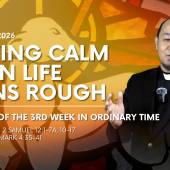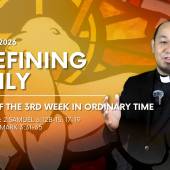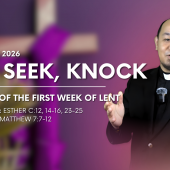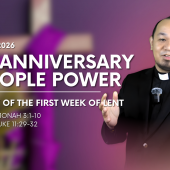Treasures in heaven promise eternal life!

October 20, 2025 Monday of the Twenty-ninth Week in Ordinary Time
Daily Readings: Romans 4:20-25; Luke 12:13-21
Ever since Abraham committed himself to God’s call, he began to trust in His ways and promises. The land through which Abraham traveled was a desert, and the path was full of ups and downs. He was tested in every possible way. Yet he grew strong in faith, learning to give meaning to every situation and to glorify God. This is what made him righteous. St. Paul says that Abraham’s experience is also applicable to us who believe in Jesus Christ. He also contrasts faith with works. Salvation is a gift of God’s grace; it can never be achieved by human effort, as believers of Jainism and Buddhism assert.
Material wealth is an integral part of human well-being. If a person becomes too occupied with accumulating perishable wealth, he or she loses sight of spiritual wealth. That is why Jesus warns the man who asks Him to act as a judge or arbitrator. Abundance of wealth made the rich man in the parable treat his soul as if it were a material possession. Human life is not made up of the body alone; it is the soul that gives glory to the body. The rich fool uses the personal pronoun “I” six times and the possessive adjective “my” five times, revealing his selfish lifestyle. Money has blocked his vision; he cannot see beyond himself. The maxim of his life is “relax, eat, drink, be merry,” which demonstrates the hedonistic attitude that governs him. Jesus concludes the parable with a warning: “So it is with those who store up treasures for themselves but are not rich toward God” (Luke 12:21).
Call to Action: We must ensure that all our toil does not block our vision of God. Our wealth is also meant to help those in need. As long as there are needy people in the world, humanity itself remains poor.
Radio Veritas Asia (RVA), a media platform of the Catholic Church, aims to share Christ. RVA started in 1969 as a continental Catholic radio station to serve Asian countries in their respective local language, thus earning the tag “the Voice of Asian Christianity.” Responding to the emerging context, RVA embraced media platforms to connect with the global Asian audience via its 21 language websites and various social media platforms.














